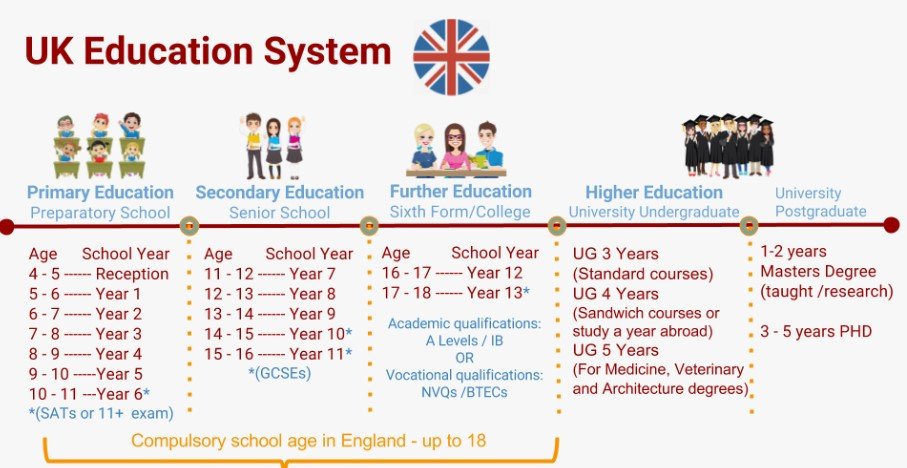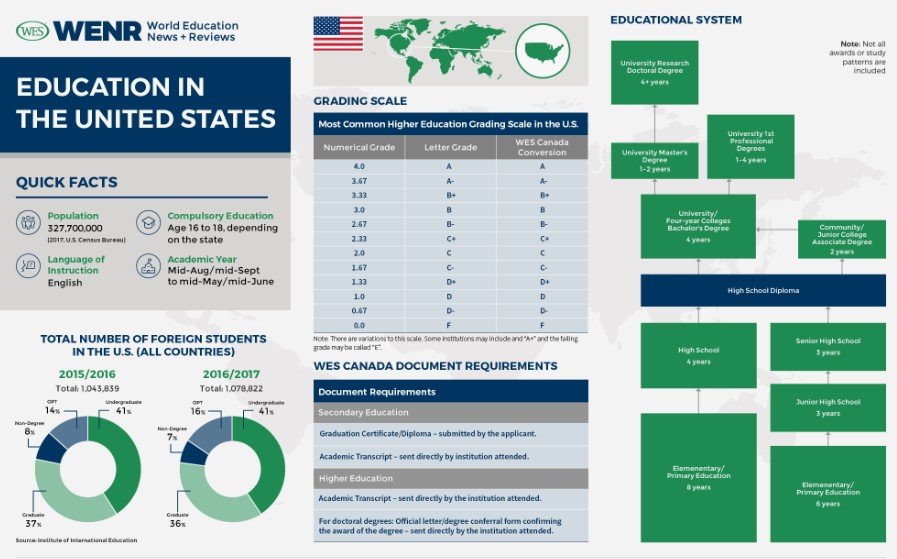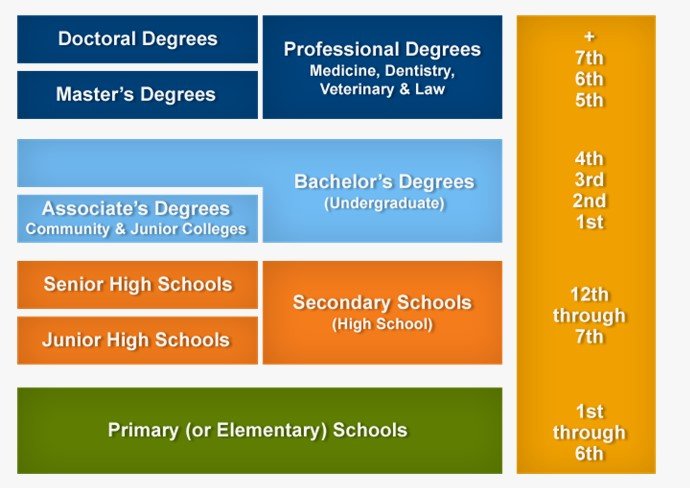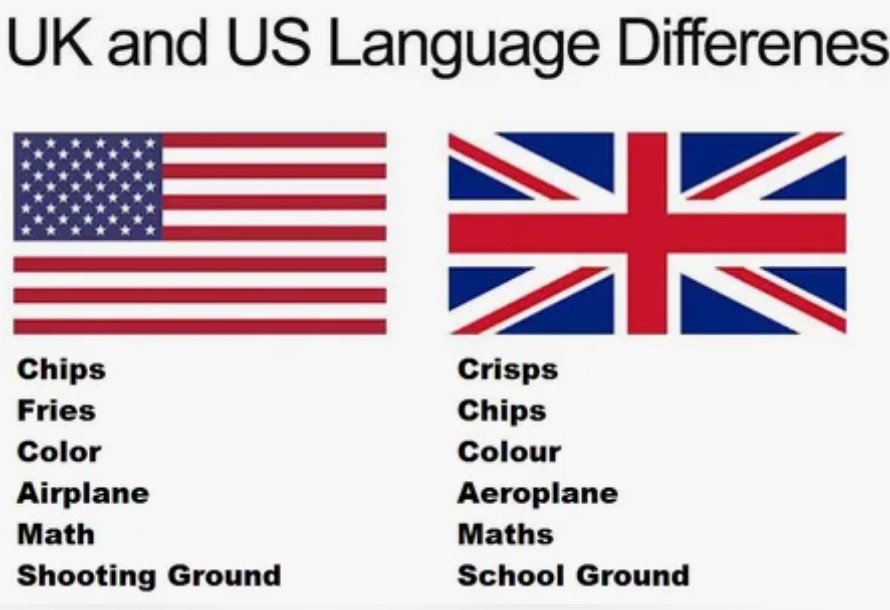The UK education system offers shorter, more intensive programs than the US system. This allows students to graduate sooner without compromising quality.
The UK also provides the option to complete a graduate program in just one year, offering a faster route to advanced education. Several key differences emerge when comparing the United Kingdom and the United States’ education systems. Understanding these distinctions can help students decide where to pursue their academic goals.
From program durations to teaching methods, each system has its unique strengths and weaknesses. By examining these variations, individuals can determine which system aligns best with their educational objectives and preferences. Let’s delve deeper into the nuances of the UK versus US education systems to gain a comprehensive understanding of their differences and benefits.
UK VS US Education System

Table of Contents
Structure
The education systems in the UK and the US vary significantly in their structure, encompassing primary, secondary, and higher education. Each stage plays a crucial role in shaping the educational journey of students.
Primary Education
Primary education in the UK typically begins at the age of 4 or 5 and lasts until the age of 11. It is divided into Key Stages, with Key Stage 1 covering ages 5-7 and Key Stage 2 covering ages 7-11. The curriculum focuses on core subjects such as English, Mathematics, and science and introduces foundational skills in subjects like History, Geography, and Art.
Secondary Education
Secondary education in the US starts around the age of 11 or 12 and continues until the age of 18. The curriculum includes a wide range of subjects, allowing students to explore diverse fields. The high school system in the US is structured into four years, with the first two years being general and the latter two years offering specialization in various subjects.
Higher Education
Higher education in the UK generally includes undergraduate and postgraduate programs offered by universities and colleges. Undergraduate programs typically span three years, with the option to pursue an additional year for an integrated master’s degree. Postgraduate programs, including master’s and doctoral degrees, are often completed within one to two years.
Curriculum
The curriculum in both the UK and US education systems plays a crucial role in shaping the academic journey of students. While both systems have their unique approach to curriculum design, they aim to provide a comprehensive education to students.
Core Subjects
In the UK, the core subjects in the curriculum typically include English, Mathematics, Science, and History. These subjects form the foundation of a student’s education and are mandatory for all students up to a certain level. In comparison, the US education system also emphasizes core subjects such as English, Math, Science, and Social Studies. However, there may be variations in the specific content covered within these subjects across different states and districts.

Elective Options
When it comes to elective options, the UK education system offers students the opportunity to pursue a wide range of subjects beyond the core curriculum. Students can choose from subjects like Art, Music, Design & Technology, and Foreign Languages as part of their elective courses. On the other hand, the US education system provides a diverse array of elective options, including fine arts, computer science, health education, and career and technical education. This allows students to tailor their education based on their interests and career goals.
Assessment
Assessment plays a crucial role in shaping the education systems of the UK and the US. Both countries employ various methods to gauge students’ understanding and progress, but there are notable differences in how assessment is carried out.
Standardized Testing
In the US, standardized testing is a significant component of the education system. Tests such as the SAT and ACT are widely used for college admissions. Additionally, states conduct standardized assessments to measure students’ proficiency in subjects like math and English. Conversely, the UK does not have a standardized test for college admissions, relying more on students’ performance in A-level exams and coursework.
Grading System
The grading systems in the US and UK also differ. In the US, the grading scale typically ranges from A to F, with GPA (Grade Point Average) calculations. On the other hand, the UK employs a different grading system, using letters such as A, A, B, C, and D at the A-levels and GCSEs. Additionally, the UK grading system includes numerical scores for individual subjects, providing a more detailed assessment of students’ performance.
Teaching Style
In the UK, the education system tends to focus on a broader view, utilizing various sources and authentic texts, while the US curriculum leans toward a national focus and heavy reliance on textbooks. Additionally, the UK offers shorter and more intensive courses, allowing for quicker graduation without compromising quality.
Classroom Approach
The teaching style in the UK and the US differs significantly. In the UK, students are taught in a more structured and formal manner, while in the US, the approach is more informal and interactive. The British education system is more focused on imparting knowledge and understanding of the subject matter, while the US education system emphasizes critical thinking and problem-solving skills.
Teacher-student Interaction
In the UK, teacher-student interaction is more formal and hierarchical. Teachers are seen as authority figures, and students are expected to show respect and obedience. In the US, the teacher-student relationship is more informal and collaborative, with teachers often engaging students in discussions and debates. In the UK, the classroom environment is more disciplined, with students expected to adhere to strict rules and regulations. In contrast, the US classroom environment is more relaxed, with students encouraged to express themselves freely and engage in group activities. Overall, the teaching style in the UK and the US is influenced by cultural and social factors, which shape the attitudes and values of teachers and students. While both systems have their strengths and weaknesses, it is important to recognize the differences and adapt accordingly.

Funding
In terms of funding, the UK education system offers shorter and more intensive courses compared to the US, allowing for quicker graduation without compromising quality. The US curriculum focuses nationally, while the British system takes a broader approach, utilizing various sources for education.
Public Funding
In the UK, the education system is funded primarily by the government, while in the US, the funding comes from a combination of federal, state, and local taxes. Public in the UK is allocated based on the number of students enrolled in each school, with additional funding given to schools in disadvantaged areas. In contrast, the public funding in the US is often based on property taxes, which means that schools in wealthier areas receive more funding than those in poorer areas. This can lead to significant disparities in the quality of education, with schools in lower-income areas often lacking resources and struggling to provide a high-quality education.
Private Funding
While public funding is the primary source of funding for schools in both the UK and the US, private funding also plays a significant role in the education system. In the UK, private schools are common, and they are often funded through tuition fees paid by students’ families. These schools are not funded by the government and are instead run as independent businesses. In the US, private schools are also common, and they are often funded through a combination of tuition fees and donations from alumni and other supporters. Private universities in the US receive funding from a variety of sources, including endowments and donations from wealthy individuals and corporations. Overall, the funding of the education system in the UK and the US is complex and multifaceted, with both public and private funding playing a significant role. While the UK system is primarily funded by the government, the US system relies more heavily on property taxes and private donations.
Outcomes
When it comes to comparing the education systems of the United Kingdom (UK) and the United States (US), it’s essential to consider the outcomes of each system. The outcomes of the education systems play a crucial role in shaping the future prospects of students and have a significant impact on their overall success in the academic and professional spheres.
Graduation Rates
The graduation rates in both the UK and US education systems have their own set of pros and cons. In the UK, the graduation rates are notably high due to the focused and streamlined nature of degree programs. Students in the UK can complete an undergraduate program in three years, while graduate programs or post-graduation can be finished in just one year, allowing for quicker entry into the workforce or further studies.
On the other hand, the US education system often features more extended undergraduate programs, typically lasting four years, which can contribute to a longer time spent in education before entering the job market.
Employment Rates
Employment rates are an essential aspect of evaluating the effectiveness of any education system. In the UK vs US education system comparison, employment rates reflect the preparedness of graduates to enter the workforce. The UK’s shorter and more intensive courses can lead to higher employment rates, as students are equipped with the necessary skills and knowledge in a more efficient manner.
Conversely, the US education system provides a more comprehensive approach, allowing students to delve deeper into their chosen fields, which can also contribute to strong employment prospects, albeit over a longer period of time.

Challenges And Reforms
The education systems in the UK and the US face various challenges and are constantly undergoing reforms to address them. Understanding the issues faced, as well as the proposed changes, is crucial in evaluating the effectiveness and impact of these educational systems.
Issues Faced
- Lack of standardized curriculum across states in the US
- Differences in assessment methods and grading systems
- Financial barriers to higher education in both countries
- Inequality in access to quality education
- Inadequate support for special needs students
Proposed Changes
Both the UK and the US are considering various reforms to address the challenges in their education systems. Some proposed changes include:
- Implementing a more standardized national curriculum in the US
- Reforming assessment methods to focus on holistic evaluation
- Introducing financial aid programs to make higher education more accessible
- Investing in resources to bridge the education gap and enhance inclusivity
- Enhancing support systems for students with special needs
UK VS US Education System
Frequently Asked Questions
Is UK or US education better?
The UK education system offers shorter, more intensive courses, allowing for quicker graduation without compromising quality. UK programs are known to be more efficient and condensed compared to those in the US.
Why is the UK education system better?
Courses in the UK education system are shorter and more intensive, allowing for quicker graduation without compromising quality. Undergraduate programs take three years, while graduate programs in the UK can be completed in just one year.
How do our school years compare to those in the UK?
US school years typically start in August or September and end in May or June, while UK school years start in September and end in July. The US has a K–12 system, while the the UK has a primary, secondary, and college system.
How does the UK rank in education?
The UK education system ranks highly globally for its shorter, intensive courses, ensuring quality education in less time.
Conclusion
Ultimately, choosing between the UK and US education systems depends on individual preferences and goals. Both offer unique advantages, such as the UK’s shorter program durations and the US’s national focus. Understanding these distinctions can help students make informed decisions for their academic pursuits.

